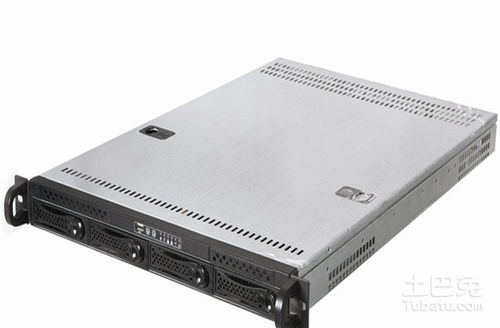服务器和VPS的特点有哪些
随着互联网的发展和进步,服务器和VPS(Virtual Private Server)在网站和应用程序的托管方面发挥着至关重要的作用。在选择托管解决方案时,了解服务器和VPS的特点对于网站管理员和开发人员来说至关重要。本文将介绍服务器和VPS的特点及其优势,帮助读者更好地理解和应用这些技术。
服务器是一种用于存储和处理数据的计算机设备。服务器的特点如下:
1. 高性能:服务器通常配备高性能的处理器、大容量内存和快速存储设备,以确保在处理大量请求时能够提供快速响应。
2. 可靠性:服务器通常采用多个硬盘配置,通过热备份和冗余技术来确保数据的安全性和可靠性。即使一个硬盘故障,服务器也能够继续正常运行。
3. 可扩展性:服务器通常具有可扩展性,可以根据需求进行扩展和升级。管理员可以根据网站或应用程序的增长需求,增加硬件资源以提高性能和容量。
4. 安全性:服务器具有强大的安全功能,包括防火墙、入侵检测系统和安全认证功能,以保护数据免受黑客和恶意软件的攻击。
5. 灵活性:服务器提供了灵活的配置选项,管理员可以根据自己的需求选择操作系统、软件和服务,并可以自定义服务器设置来满足特定的要求。
VPS是一种虚拟化技术,它将物理服务器分割成多个虚拟服务器。VPS的特点如下:
1. 虚拟化:VPS通过虚拟化技术将物理服务器分割为多个独立的虚拟服务器。每个VPS都有自己的操作系统和资源,与其他VPS相互隔离。
2. 独立性:每个VPS都是独立的,拥有自己的独立IP地址、独立文件系统和独立配置,提供了与独立服务器相似的控制和灵活性。
3. 成本效益:相比于租用独立服务器,VPS具有更低的成本。多个VPS可以在同一物理服务器上运行,这样可以节省成本并提高资源的利用率。

4. 可定制性:VPS提供了灵活的配置选项,管理员可以根据自己的需求选择所需的操作系统、软件和服务,并可以根据需要进行升级和扩展。
5. 可靠性:VPS通过硬件虚拟化技术和冗余配置来提高可靠性。即使一个VPS出现故障,其他VPS仍然可以正常运行。
综上所述,服务器和VPS在托管方面具有许多相似和不同的特点。服务器通常用于大型网站和应用程序,提供更高的性能和可靠性,而VPS适用于中小型网站和应用程序,提供更灵活和经济的解决方案。根据实际需求和预算,网站管理员和开发人员可以选择适合自己的托管解决方案。
Tags: 服务器特点、VPS特点、托管解决方案、性能、可靠性、可扩展性、安全性、灵活性、虚拟化、独立性、成本效益、可定制性、可靠性
Servers and VPS: What Are Their Features?
With the development and advancement of the Internet, servers and VPS (Virtual Private Server) play a crucial role in hosting websites and applications. It is essential for website administrators and developers to understand the features of servers and VPS when choosing a hosting solution. In this article, we will explore the characteristics and advantages of servers and VPS to help readers better understand and apply these technologies.
A server is a computer device used to store and process data. The features of servers are as follows:
1. High performance: Servers are typically equipped with high-performance processors, large-capacity memory, and fast storage devices to ensure quick response times when handling a large number of requests.
2. Reliability: Servers often have multiple disk configurations and employ technologies such as hot backup and redundancy to ensure data safety and reliability. Even if one disk fails, the server can continue to operate normally.
3. Scalability: Servers generally have the ability to scale and upgrade based on demand. Administrators can increase hardware resources to improve performance and capacity in response to the growth of websites or applications.
4. Security: Servers have robust security features, including firewalls, intrusion detection systems, and security authentication, to protect data against hacker attacks and malicious software.
5. Flexibility: Servers offer flexible configuration options, allowing administrators to choose the operating system, software, and services according to their needs. They can also customize server settings to meet specific requirements.
A VPS is a virtualization technology that partitions a physical server into multiple virtual servers. The features of VPS are as follows:
1. Virtualization: VPS divides a physical server into multiple independent virtual servers using virtualization technology. Each VPS has its own operating system and resources, isolating it from other VPS instances.
2. Independence: Each VPS is independent, having its own dedicated IP address, file system, and configuration, providing similar control and flexibility as a dedicated server.
3. Cost-effective: VPS offers a lower cost compared to renting a dedicated server. Multiple VPS instances can run on the same physical server, saving costs and improving resource utilization.
4. Customization: VPS provides flexible configuration options. Administrators can choose the desired operating system, software, and services according to their needs and upgrade or expand as required.
5. Reliability: VPS improves reliability through hardware virtualization technology and redundant configurations. Even if one VPS fails, other VPS instances can continue running **oothly.
In conclusion, servers and VPS have many similar and distinct features in terms of hosting. Servers are typically used for large-scale websites and applications, offering higher performance and reliability, while VPS is suitable for **all-to-medium-sized websites and applications, providing a flexible and cost-effective solution. Depending on the specific requirements and budget, website administrators and developers can choose the hosting solution that best suits their needs.
Tags: Server features, VPS features, hosting solutions, performance, reliability, scalability, security, flexibility, virtualization, independence, cost-effectiveness, customization, reliability




评论前必须登录!
注册